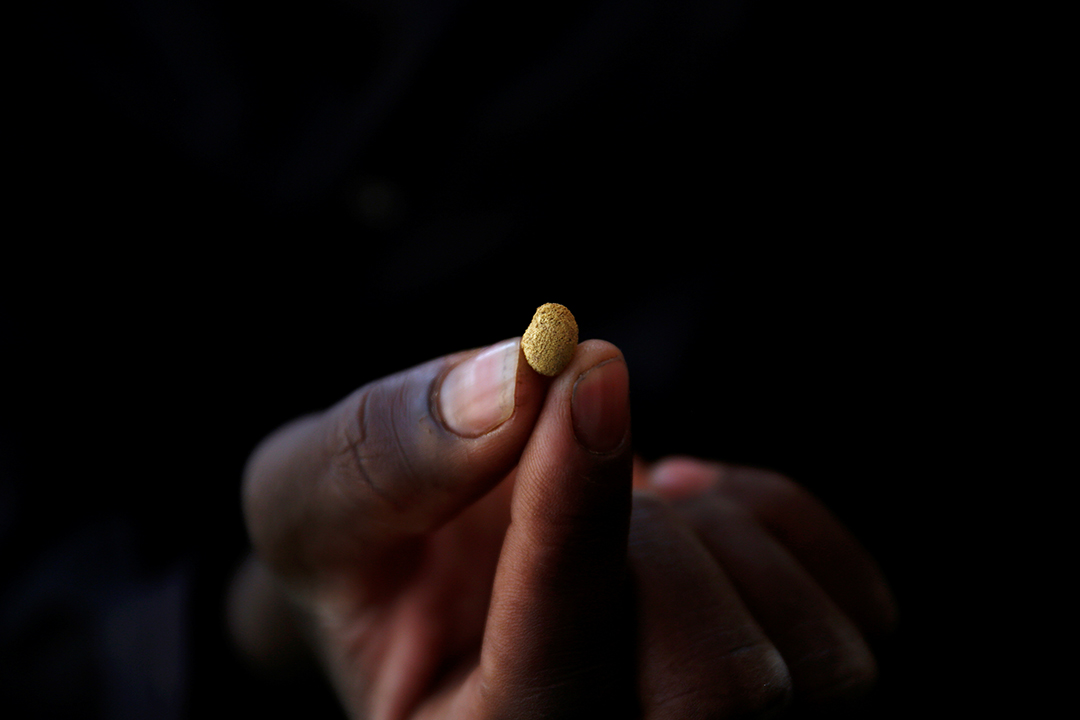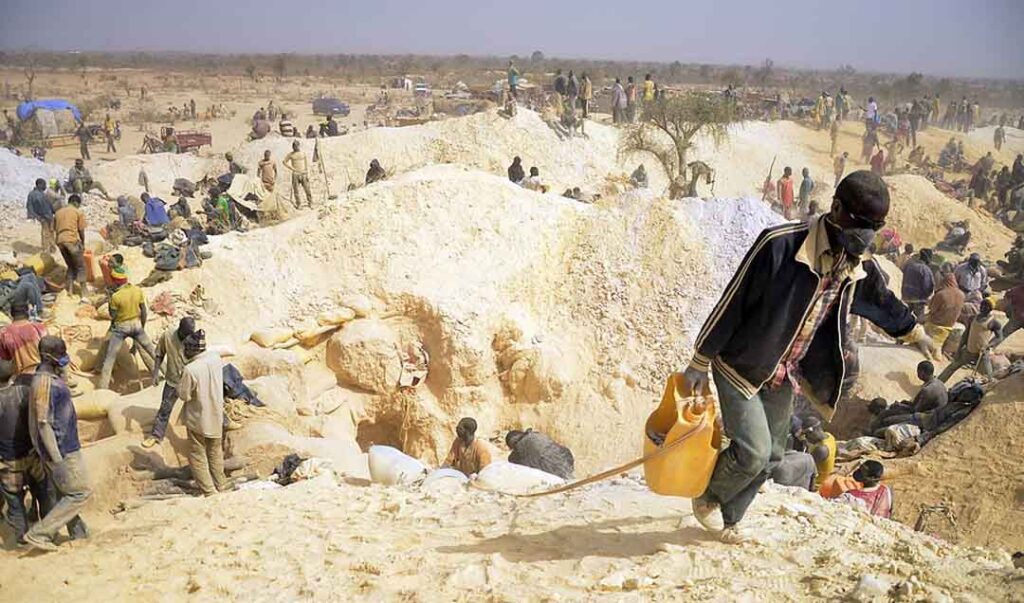ADF STAFF
Extremist groups in the Sahel are eyeing gold mines as a way to pay for weapons, vehicles and other equipment required to launch deadly attacks.
Burkina Faso, the fastest-growing gold producer on the continent, has found itself in the crosshairs as extremist groups fight to gain control of small-scale artisanal mines in the country’s northeast.
“The terrorists hear that this site or that one is thriving with gold, and then they target those sites –– they can kill everyone or they take control and take taxes,” Kibsa Ouedraogo, a traditional chief of the village of Noaka, told Financial Times (FT). “To me, it’s not about religion –– it’s a kind of mafia.”
In many ways gold presents a perfect currency for criminals and terrorists since it is virtually untraceable and, at $58 per gram, is valuable in small quantities. Gold mining has taken place in Burkina Faso for hundreds of years, but the country recently has experienced a gold rush with more than 30 metric tons per year being pulled out of unregulated, untaxed artisanal mines.
Once in the hands of criminals, gold is smuggled across borders to coastal countries where it can be transported to the Middle East, refined and sold for a hefty profit.

“If these groups want to get big, the need financing,” Christian Nellemann, director of the Norwegian security analysis group Rhipto told FT. “…They desperately need gold.”
This glittering lure of wealth has brought violence. Officials report that 2021 saw an almost unprecedented level of gold-related violence. In June, jihadists launched the deadliest attack in the country since 2015, killing 160 and displacing more than 7,000 people, according to the international Mines Advisory Group, MAG.
The attackers were believed to have attacked the village in the Yagha province in an attempt to seize a gold mine. The next day, the region’s governor suspended all gold-mining-related activities in Yagha and Oudalan provinces.
On August 31, terrorists attacked a convoy of vehicles of the Canadian mining company Iamgold Corp., which was traveling to the Essakane gold mine in Burkina Faso. Reuters reported that the convoy’s security detail repelled the attack.
Iamgold immediately suspended all convoys to and from Essakane, the company’s biggest operating mine, “until further notice.”
These attacks are not isolated. The Africa Center for Strategic Studies reported that 1,170 violent incidents were observed in Burkina Faso, neighboring Mali and western Niger in 2020, a 44% increase over 2019.
Violence has increased steadily since 2015, and two groups — the Macina Liberation Front and the Islamic State of the Greater Sahara — were responsible for nearly all the 2020 attacks, which resulted in 4,122 deaths, a 57% increase over 2019.
The center reports that Sahel violence has displaced 1.7 million people, of which 1.1 million are in Burkina Faso.
After undermining a region through infiltration and attacks, “jihadists gain control over vital smuggling routes and mining sites, including artisanal gold mines,” wrote Dr. Malte Lierl in a 2020 report titled “Growing State Fragility in the Sahel: Rethinking International Involvement.”
Control over gold-rich areas gives the groups a source of wealth and a steady supply of new fighters, observers said. When jihadists take over an artisanal mining area, the local men are encouraged — or ordered — to grow their beards, adopt shortened pants and abide by extremist religious teachings.
“No matter which region, their first target is to control the mining area,” Burkinabe security analyst Mahamadou Sawadogo told FT. “It’s their top revenue source and also a good place for them to recruit young men.”

